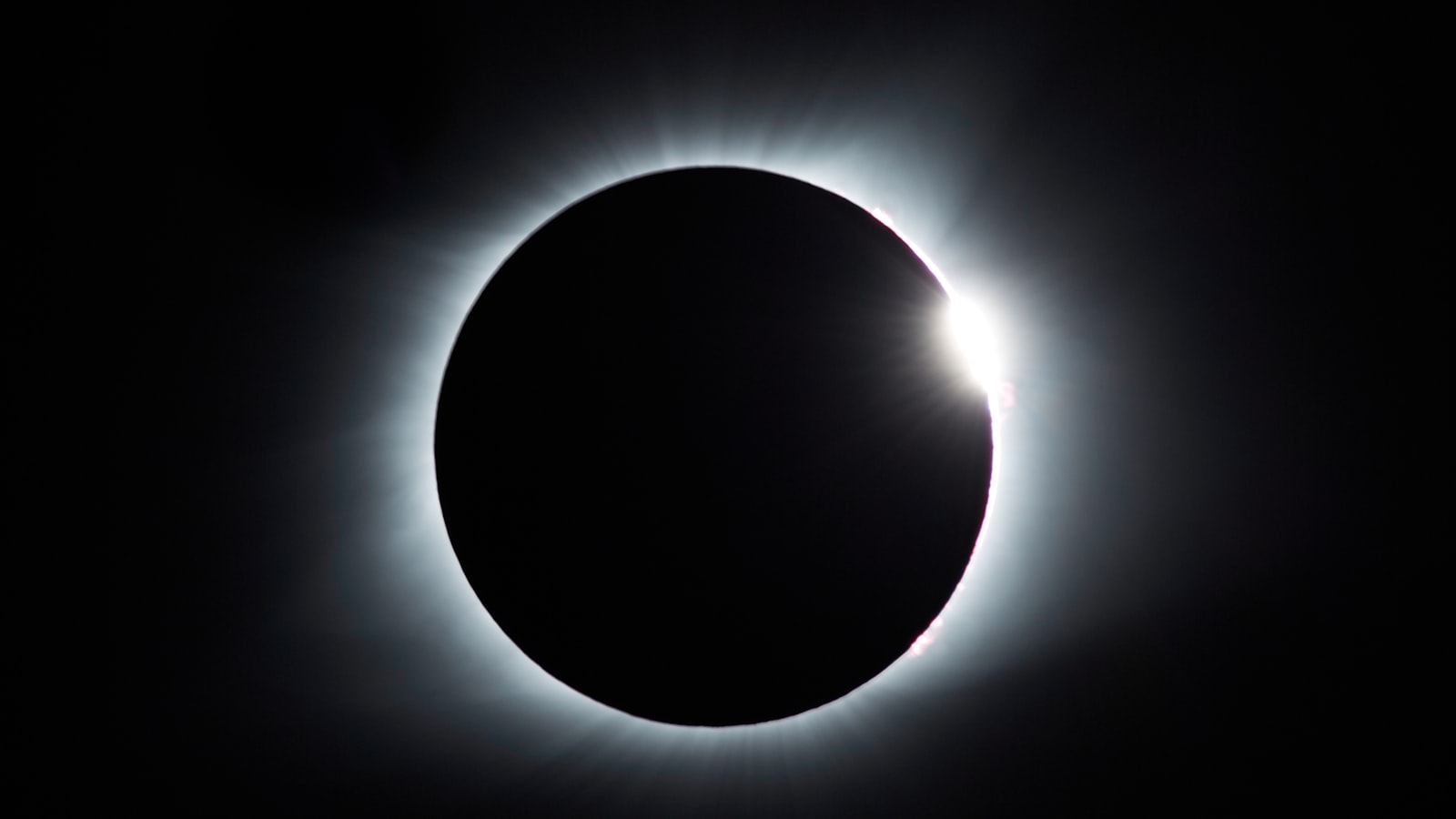Albert Einstein once remarked, “Look deep into nature, and then you will understand everything better.” As we glance skywards during an eclipse, the grandeur of nature’s spectacle is not just a stunning visual feast, but it's also a timely reminder of our connection to our environment and the importance of preserving it.
A Celestial Dance: Understanding Eclipses

Eclipses have been captivating humanity throughout history, serving as inspirations for myths, evoking awe, and sometimes fear. An eclipse occurs when the Earth, moon, and sun align precisely, either casting a shadow on Earth (solar eclipse) or allowing Earth to cast a shadow on the moon (lunar eclipse).
What’s enthralling is that, despite understanding the scientific process behind eclipses, the event can still evoke a strong sense of wonder. The upcoming solar eclipse can serve as a powerful symbol for environmental awareness. Speaking of staying informed about these celestial events, check out eclipse-timer.com, a tool that can tell you the precise time and date of solar eclipses in your area. Isn’t that nifty?
The Impact of Solar Eclipses on Nature
When solar eclipses occur, they temporarily alter the environment. Birds reportedly stop chirping as they mistake the darkness for night, and flowers can begin to close their petals. Even the temperature can drop noticeably.
Understanding the Dual Role of Solar Activities
Our sun is the ultimate energy provider, and solar activity has both immediate and long-term effects on our planet. For instance, solar flares can interfere with satellite operations and communications. While such events are different from eclipses, they highlight how interlinked we are with cosmic occurrences.
So, what’s the takeaway? Every natural event has a lesson. These occurrences remind us of the delicate balance of our ecosystem and our role in its preservation.
Environmental Awareness Sparked by Eclipses

Eclipses don’t just provide us with awe-inspiring moments. They also offer a unique opportunity to educate and raise environmental awareness. During a solar eclipse, for example, people often come together for viewing events, making it an ideal moment to share information about sustainability and environmental protection.
Tips for a Greener Eclipse Experience
- Travel Smart: If you’re heading to a prime eclipse viewing spot, consider carpooling or using public transportation.
- Leave No Trace: Whatever you bring to your viewing location, make sure it leaves with you. Better yet, use reusable containers to minimize waste.
- Solar-Powered Gadgets: Embrace the theme and use solar-powered chargers and devices while enjoying the event.
- Educational Outreach: Seize the moment to educate others on the sun’s role in our climate system and the importance of renewable energy sources.
Integrating Eclipse Excitement into Environmental Activism
Do you find yourself invigorated by the energy of a solar eclipse? Here’s a fun idea: Why not channel that excitement into something beneficial for our planet? Organize or participate in environment-centered activities post-eclipse. This could include a neighborhood clean-up or a tree-planting day. Eclipses can serve as a metaphor for enlightenment and change – the perfect catalyst for environmental action.
The Future of Solar Eclipses and their Role in Conservation

Scientists predict eclipses years in advance, and each one could potentially be the spark for environmental initiatives. Imagine a world where every solar eclipse is accompanied by a global conservation effort. Not only do we have a chance to gaze in wonder at the skies, but we also contribute to preserving those very sights for future generations.
Environmental Organizations and Eclipses
Many environmental organizations leverage the public's interest in eclipses to promote their causes. Hosting events during eclipses, creating educational content, and celebrating “Eclipse for the Earth” days are fantastic ways to make a lasting impact while enjoying nature’s grandeur.
Connect with Your Environment
As you prepare for the next solar eclipse, remember to hop onto eclipse-timer.com to get the precise timing of the eclipse. Then, go outside, look up, and allow yourself to be enveloped in the cosmic magic. Feel a sense of kinship with people across the globe who share that moment with you – all under the same sun, all dependent on the same Earth.
Ecology and Astronomy: Partners in Education
Educators often use solar eclipses as tools for teaching not just astronomy but also ecology. Eclipses demonstrate the interconnectivity of our solar system and can serve as a powerful illustration of the importance of ecological balance right here on Earth.
Interesting Facts About Eclipses
- A total solar eclipse can cause noticeable drops in temperature.
- The longest a total solar eclipse can last is about 7.5 minutes.
- Animals can react to an eclipse, exhibiting behavior typical of nightfall or dawn.
- Ancient cultures often interpreted eclipses as omens or supernatural events.
- Eclipses can only occur because of an extraordinary cosmic coincidence: the sun's diameter is about 400 times greater than that of the moon, and it's also about 400 times farther away, making the two appear roughly the same size in the sky.
Concluding Thoughts: A Union of Sky and Ground
In wrapping up, let’s remember that nature's phenomena, like solar eclipses, are more than just a marvel to witness. They’re a prompt, a nudge from the universe, to remember the fragility of our home planet and to take action towards its conservation. The next time you marvel at the darkening sky as the moon crosses the sun's path, let it be a symbol of unity – in our need for nature, in our actions to protect it, and in the enjoyment of the celestial shows that remind us we’re part of something much larger. The next eclipse might just be your call to action.
Gaze upwards, but stay grounded in your commitment to the environment. After all, as Ralph Waldo Emerson aptly put it, “The sky is the daily bread of the eyes.” Let’s ensure there’s plenty to go around for eyes yet to come.



















